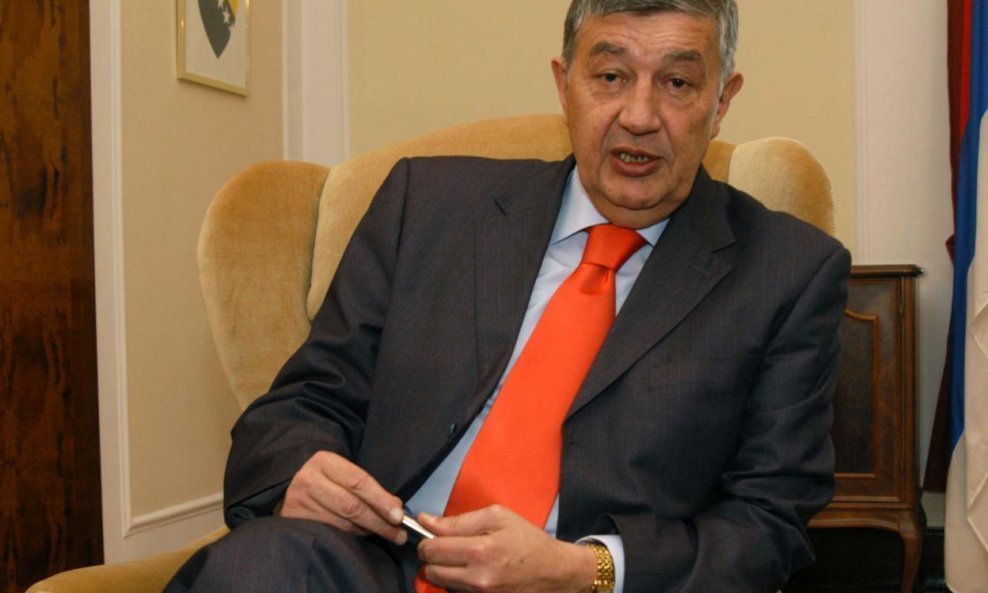The Presidents of Serbia and Turkey, Boris Tadic and Abdullah Gul, and the three members of Bosnia and Herzegovina's collective state presidency, Nebojsa Radmanovic, Zeljko Komsic and Bakir Izetbegovic, held talks in Karadjordjevo, in the northern Serbian province of Vojvodina, on Tuesday, expressing mutual support for their countries' integration with European associations and their commitment to the principle of non-interference in one another's internal affairs.
The meeting in Karadjordjevo focused on the latest plans for a referendum in Bosnia's Serb entity of Republika Srpska, the Bosnian judiciary, the economy and the European integration process.
The media in Belgrade quoted President Tadic as saying that Serbia would never support a referendum that would lead to the division of Bosnia and Herzegovina or bring into question the country's territorial integrity. Tadic added that Serbia did not want to interfere in Bosnia's internal affairs and that he therefore could not comment on the recent decision of the Serb entity parliament to hold a referendum.
Serbia wants to cooperate with all institutions of Bosnia and Herzegovina, Tadic said, adding that by interfering in Bosnia's internal affairs Serbia would be crossing "the red line" and repeat mistakes made in the past.
Serbia fully respects the Dayton peace agreement and the territorial integrity of its neighbours, but it expects them to do the same with regard to the issue of Kosovo, said Tadic.
Speaking at a joint news conference in Karadjordjevo, Tadic pointed to the importance of reconciliation in the region, prosecution of war crimes and individualisation of guilt, underlining as the most important political objective the region's becoming part of the European Union as soon as possible, starting with Croatia.
"Croatia should become an EU member as soon as possible, but it is also important that after Croatia's entry the break is not too long before the next country joins," said Tadic.
Turkish President Gul said that the Balkans was not the periphery of Europe, but its heart, calling for putting the entire region under the bigger umbrella of the EU and NATO. The three countries want to intensify their cooperation in order to solve the biggest problems, respecting in that process the principle of sovereignty and integrity and non-interference in one another's internal affairs, he said.
Nebojsa Radmanovic, who chairs the Presidency of Bosnia and Herzegovina, said that before the Karadjordjevo meeting the Presidency members held talks with Tadic which also focused on proceedings against war crimes suspects.
"We agreed that indictments issued by Serbia and Croatia were causing political problems with regard to citizens of Bosnia and Herzegovina and that a trilateral meeting should be held to discuss that problem," Radmanovic said.
The Croat member of Bosnia's Presidency, Zeljko Komsic, said the meeting in Karadjordjevo was in a way an act of "dealing with the ghosts and vampires of the past", and that one could expect "new relations in the region", notably between Serbia and Bosnia and Herzegovina.
The Bosniak member of the Bosnian Presidency, Bakir Izetbegovic, said there had been opposition in the country to attending the meeting in Karadjordjevo, but that he hoped that Karadjordjevo would become a symbol of a new beginning.
Today's meeting in Karadjordjevo is a continuation of the initiative launched in April 2010 by President Gul, when he organised a meeting in Istanbul with Tadic and the then Bosniak member of the Bosnian Presidency, Haris Silajdzic, in an attempt to stabilise the situation in the region and help improve relations between Serbia and Bosnia and Herzegovina.
The incumbent Bosniak member of the Presidency of Bosnia and Herzegovina, Bakir Izetbegovic, said ahead of the meeting in Karadjordjevo that it would provide yet another opportunity to strengthen mutual trust.
The fact that the meeting was organised in Karadjordjevo provoked criticism from a number of Bosniak political parties which said that the place was unacceptable considering that Croatia's first president, the late Franjo Tudjman, and the former president of Serbia, the late Slobodan Milosevic, had negotiated about partitioning Bosnia and Herzegovina in Karadjordjevo.
Komsic and Izetbegovic dismissed the criticism on Monday, saying that their attendance at the meeting in Karadjordjevo was proof of the failure of all attempts to divide Bosnia and Herzegovina.
The Serb Democratic Party (SDS), a Bosnian Serb opposition party, levelled criticism at the incumbent chair of Bosnia's Presidency, Nebojsa Radmanovic, however, not because of Karadjordjevo but because of the fact that the president of Turkey would attend the meeting as well. The party claimed that Radmanovic's attendance was actually a sign of support for Turkey's foreign policy goal of strengthening its influence in the Balkans.



































